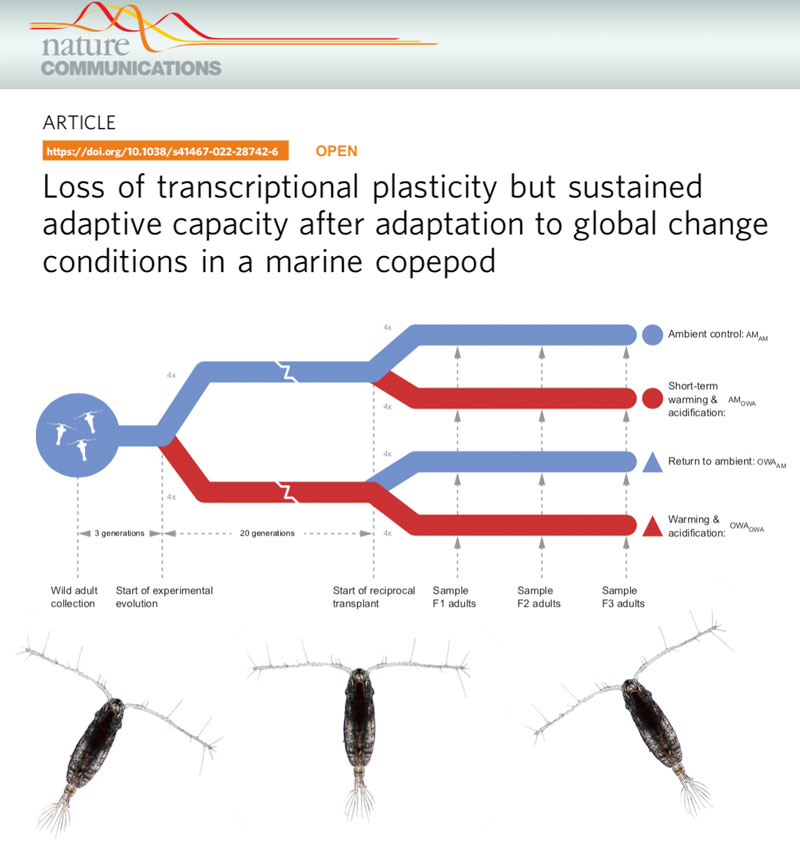One of the most difficult challenges facing scientists is predicting how organisms will respond to rapid global change. A collaboration between oceanographers at the University of Connecticut and evolutionary biologists at the University of Vermont is looking into how copepods (tiny crustaceans that rival insects as the most abundant animals on the planet) adapt to ocean warming and acidification. This requires understanding the underlying genomic mechanisms that allow these animals to adapt, and the constraints to adaptation. This study by Reid Brennan and collaborators is a lucid example of this approach, identifying sets of genes that are linked to copepod adaptation to stressful new environments, and showing that the ability of these animals to respond to changing conditions is challenged after prolonged adaptation. Therefore, there are limits to adaptation that can constrain the resilience of animal populations to environmental stress.
- Brennan, R.S., deMayo, J.A., Dam, H.G., Finiguerra, M., Baumann, H., and Pespeni, M.H. (2022)
Loss and recovery of transcriptional plasticity after long-term adaptation to global change conditions in a marine copepod
Nature Communications 13:1147
